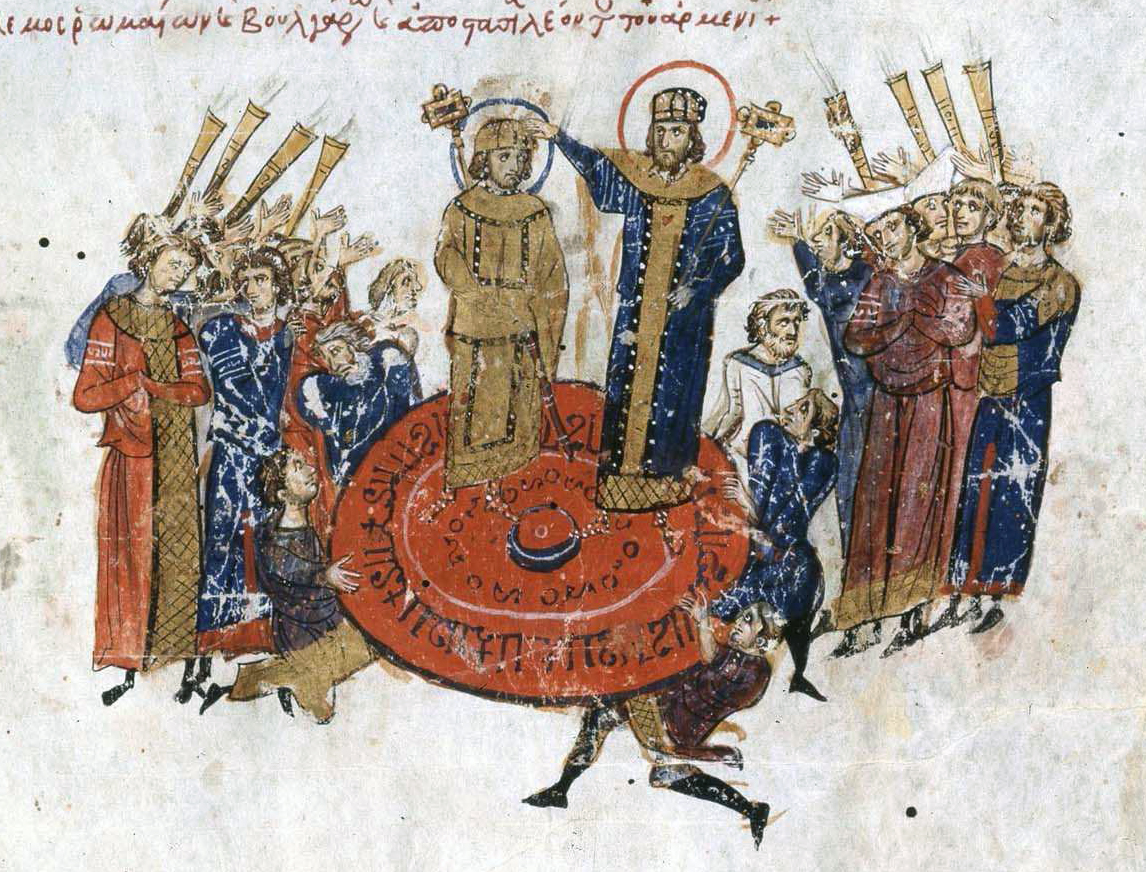Coronation of the Blatian Emperors
There he was, the Emperor of Blati, the living descendant of the Ikarian Emperors in the middle of the great Hippodrome, the people present there cheared him and shouting: Hail oh you Emperor of Ikaria, may your reign be long and prosperous!, and then cried 3 times: Many years to you!.The coronation of a new Rigas, the Blatian Emperor, is indeed one of the most impressive and famous ceremonies across Yeia, and specially in the continent of Teria, where the Blatians exercise their hegemony either by their armies or by their superior culture and diplomacy. Many would like to be the one to be crowned or one of the witnesses to such an important and lavish ceremony. There is no real succession law or method stablished in the Blatian Empire (as it also happened in the old Ikarian Empire). Usually the elder son inherits the throne but the emperor may appoint other son or other member of the imperial family as a successor or even as co-emperor. But in any case, for being perceived as the legitimate ruler one has to go be crowned following the old customs and traditions of the Blatian Empire, that are a continuation of those practised in ancient Ikaria.
The process of crowning a new Emperor
For a Blatian Emperor to be effectively appointed as such, first it has to be proclaimed by the army. According to tradition this proclamation is done outside the mighty city walls of the capital. There the soldiers will raised the Emperor on a shield and put a diadem on his head, after this, the military standards will be raised and the soldiers will aclaimed the candidate to the throne as Emperor. Then, in a procession they will escort him to the Hippodrome of the city. There he would be presented in front of the croud in full military armor and if the people gives it approval, they will chear and acclaimed him as Emperor.
After this event, the imperial procession will reach the Imperial Senate, and inside of it, in an special Senate meeting with also the presence of the High priest, the Senate will communicate to this "candidate to the throne" his appointment as emperor "as the people has manifested", then, the two consuls will give the emperor the Imperial Sceptre and the High priest will bestow the imperial crown upon the emperor's head and also recite a prayer to the Gods for his protection.
Then, outside the imperial senate, the emperor will do a sacrifice to the gods, usually a libation of milk (as the white symbolizes purity), honey (as the gold resembles glory and imperial power) and wine ( the blood that the emperor should split upon the enemies of the Blatian Empire and also its ultimate sacrifice for the wellfare and security of his country and citizens (as the last Ikarian Emperor did).
But now that he has the approval of the people, the Senate and the army, and after having done these sacrifices to the gods, a Blatian Emperor needs the approval of his divine ancestor, Zerah, the goddess of Thunder. And each afternoon or night after the coronation the Blatian Emperors go to the Silver Pavilion and from there they look at the sky, if Thunder appears then it means that the goddess confirms him as her rightful descendant and as a legitimate emperor of Blati and of a restored Ikarian Empire
Also related to the approval of Zerah is the legend that those that are not worthy of being emperor will die upon laying his hads on the Imperial Sceptre (that contains the power of thunder)-



Comments